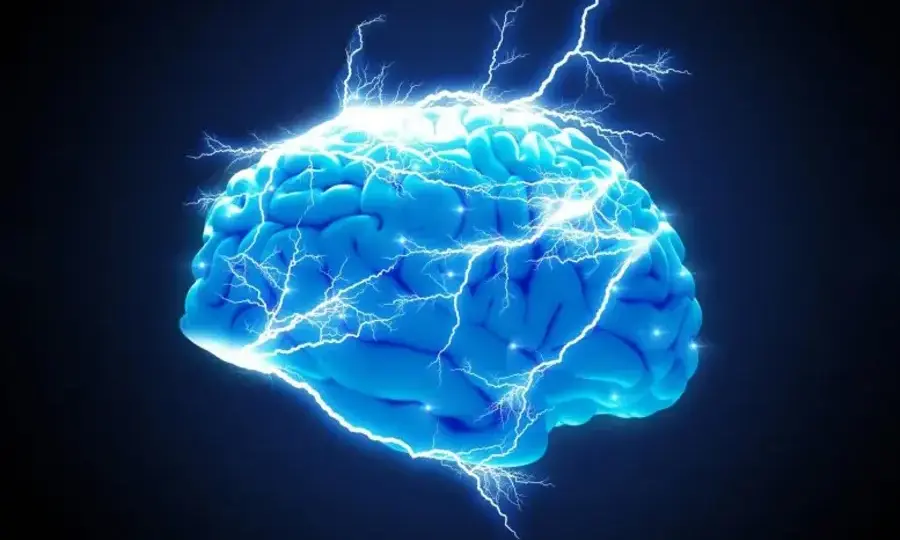Research identifies various emotion regulation systems that suggest targets for therapeutic intervention. Have you ever wanted to scream on a particularly bad day but couldn’t? Credit the human brain for how it regulates emotions, which is critical in daily life. Our ability to be flexible and change when perceiving events around us affects not only our emotions but also our behavior and decision-making.
In fact, some mental health problems are related to a person’s inflexibility, such as when constant negative thoughts make it difficult to perceive a situation in a different way.
To help address these issues, a new Dartmouth-led study is one of the first of its kind to separate emotion-generating activity from emotion regulation in the human brain. The results are published at: Nature Neuroscience.
“As a former biomedical engineer, I was interested in identifying certain regions of the brain that are uniquely involved in emotion regulation,” says lead author Ke Bo, a postdoctoral researcher in the Cognitive and Affective Neuroscience Laboratory (CANlab) at Dartmouth. “Our findings provide new insight into how emotion regulation works by identifying targets that may have clinical applications.”
The more people can activate their emotion-selective brain regions, the more resilient they will be to experiencing something negative without letting it affect them personally. These findings build on other research linking these areas to improved mental health, the ability to resist temptation and avoid drug addiction.
Amygdala and neurochemical interactions
The results also showed that the amygdala, known as the threat-associated brain region responsible for negative emotions and long thought to be an ancient subcortical hub for threat, responded to distressing experiences in the same way, regardless of whether people were using their thoughts for personal gain. control. to regulate or not to regulate negative emotions. “Essentially, the cerebral cortex is responsible for shaping people’s emotional responses, changing the way we see, and giving meaning to events around us,” says Bo.
Researchers are also interested in identifying neurochemicals that interact with emotion regulation systems. Neurotransmitters such as dopamine and serotonin form interconnected networks of neurons and are targets of both illicit drugs and therapeutic treatments. Some neurotransmitters may be important for the ability to self-regulate or “down-regulate.”
The team compared emotion regulation brain maps from two datasets with neurotransmitter binding maps from 36 other studies. The systems involved in regulating negative emotions overlapped with specific neurotransmitter systems.
“Our results showed that receptors for cannabinoids, opioids, and serotonin, including 5H2A, are particularly abundant in regions involved in emotion regulation,” says senior author Thor Wager, the Diana L. Taylor Professor of Neuroscience and director of Dartmouth University. Brain Imaging Center at Dartmouth. “When drugs that bind to these receptors are taken, they preferentially affect the emotion regulation system, raising suspicion that they may have long-term effects on our ability to self-regulate.”
The role of serotonin in depression is well established, as most commonly used antidepressants block the reuptake of serotonin at the synapses that transmit signals from one neuron to another.
5H2A It is the serotonin receptor that is most affected by psychedelic drugs, an exciting new type of mental health treatment. Research findings suggest that the effects of drugs on depression and other mental disorders may work in part by changing the way we think about life events and our ability to self-regulate. This may help explain why drugs, especially psychedelics, may be ineffective without adequate psychological support. Research can help improve therapeutic approaches by improving our understanding of why and how psychological and pharmaceutical approaches should be combined in a comprehensive treatment.
For example, systems identified by researchers may be good targets for brain stimulation to improve emotion regulation.
Neural mechanisms and emotional stability
Using computational methods, the researchers examined two independent data sets from previously obtained fMRI studies by co-author Peter Gianaros of the University of Pittsburgh. Participants’ brain activity was recorded in an fMRI scanner while they watched images that could trigger a negative response, such as bloody scenes or scary animals.
Participants were then asked to recontextualize the stimulus by generating new types of thoughts about the image to make it less aversive, before being presented with a neutral image followed by another aversive image. By examining neural activity, researchers were able to identify areas of the brain that were more active when emotions were being regulated rather than when emotions were being produced.
A new study shows that emotion regulation, also known as “reappraisal” in neuroscience, involves specific regions of the anterior prefrontal cortex and other higher-level cortical hierarchies whose roles in emotion regulation have not previously been determined with this level of precision. These areas are involved in other higher-level cognitive functions and are important for abstract thinking and long-term future visions.
“It’s important to consider these types of connections from basic science,” says Weiger. “Understanding the effects of drugs requires an understanding of the brain systems involved and what they do on a cognitive level.”













